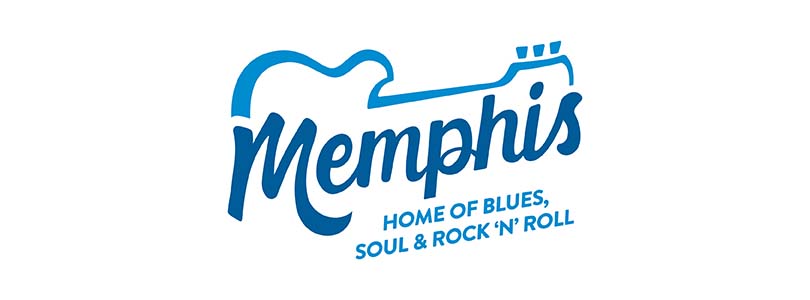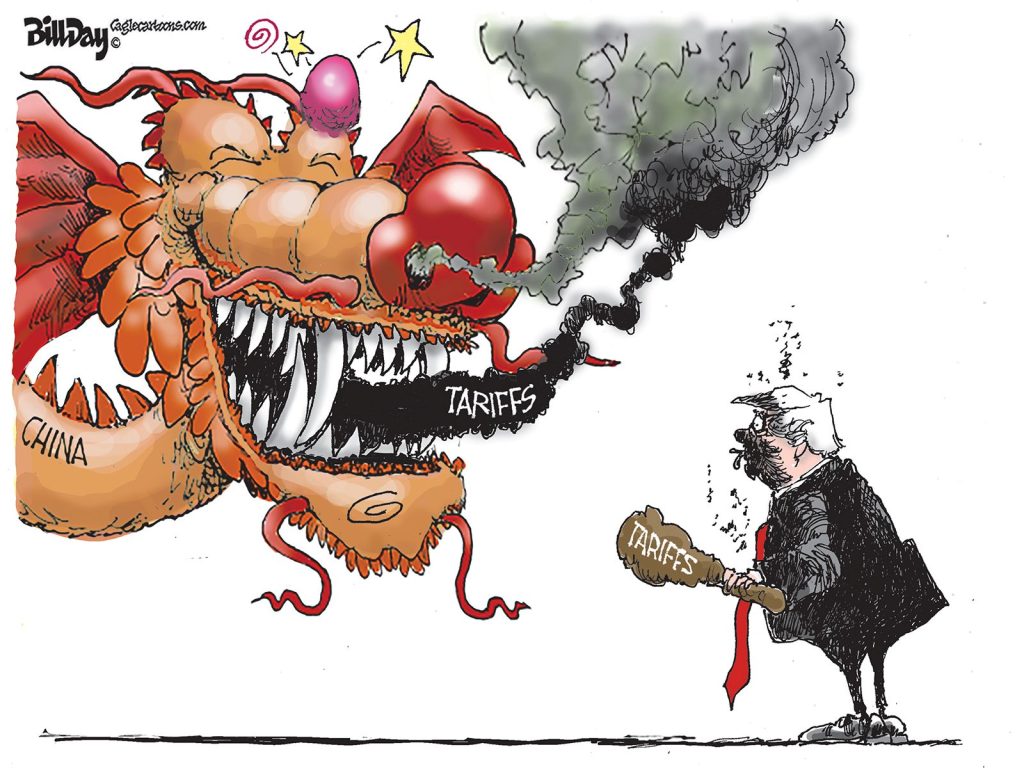The local hotel-motel tax is 55 years old this year.
It’s a funding source that has allowed Memphis and Shelby County to transform the tourism industry from a distant second thought in economic development and turn it into a major driver of the economy. Along the way, local government has regularly seen its revenues as a tempting budget to raid for the latest political whim, and because of it, Memphis Tourism has a $16 million budget significantly lower than its peer cities.
It seems this is the case once again as Memphis Mayor Paul Young eyes Memphis Tourism’s marketing budget for our community as a potential way to help pay for the $500+ million renovation of FedExForum. The renovation is essential in ensuring the Memphis Grizzlies remain here.
Here’s the thing: The Grizzlies are crucial for Memphis’ branding and self-image but so is the $3.5 billion tourist and convention industry. It should be valued, supported, and protected. If there are concerns about the operations and management of Memphis Tourism, they should be discussed with the president and executive committee of the nonprofit agency; however, the Young Administration – and state legislators like Senator Raumesh Akbari and Rep. Antonio Parkinson – should be careful about taking an action that creates a risk to the agency marketing the community at a time when Memphis needs all the positive national messaging, branding, and marketing it can get.
To that end, City of Memphis should put all options for funding the FedExForum renovation on the table rather than target the Memphis Tourism budget because it seems easier politically. After all, the local taxes generated from tourism total $109.7 million while $166.4 million in taxes flow to State of Tennessee.
Cynicism Emerges
Cynical City Hall watchers suggest that it feels like Memphis Tourism has been set up by articles in The Daily Memphian which weakened its position in the community and set the stage for this run on its bank account. The reporting on February 19, 2024, revealed that Memphis Tourism has a $27 million fund balance, and voila, 22 days later, it was revealed in a news story that “there is an effort underway to use Memphis and Shelby County tax revenue to make up the funding gap for the planned FedExForum renovations.”
The articles, combined with a third article with the mayor talking having a “robust dialogue” with Memphis Tourism, fueled the strange cause and effect feeling by some about the timing of the articles.
That’s not to say that Memphis Tourism didn’t contribute to its own credibility issues. Explanations about the $27 million in reserves were shaky and underscored by its $1.55 million to buy a downtown building owned by Memphis in May International Festival, injecting a cash infusion into the financially beleaguered group. For many, the purchase of the real estate raised questions about how Memphis Tourism had enough money to buy the real estate and why this was not outside the mission of Memphis Tourism, smacking most of all like a backscratching deal.
Another outcry was the revelation that Memphis Tourism president Kevin Kane is paid $600,000 a year. The president’s salary is set up the nonprofit agency’s executive committee whose members come from attractions, events, and facilities marketed by Memphis Tourism.
Salaries for people in similar positions range all over the place – from Tucson, Kansas City, and Seattle with comparably sized tourist marketing agencies and which pay around $300,000 to Nashville which pays $1.3 million. Salary.com reports “based on our data, it appears that the optimal compensation range for a President at Visitors Bureau is between $494,163 and $814,813, with an average salary of $646,184. Salaries can vary widely depending on the region, the department and many other important factors such as the employee’s level of education, certifications and additional skills.”
Funding Options
It has been reported that the gap in funding for the FedExForum improvements is $100 million, which means that roughly $9-10 million is needed to pay the cost of the bonds of that amount. If Memphis Tourism has an unspent balance of about $5 million a year, it’s easy to see why government officials are looking at the agency’s budget. The question is whether the balance accruing at $5 million a year for the past five years can be projected reliably into the future. It would after all pay about half of the cost of the Forum bonds.
But there are other options for the debt service amounts:
- City of Memphis’ property tax rate is the lowest it has been in three decades, and a tax increase of about 6 cents would generate enough money to pay for the improvements. If Memphis and Shelby County together wanted to produce the required amount of money to pay the bonds, it could be done with a 2 cent county property tax increase and 3 cent city property tax increase.
- Memphis and Shelby County dole out about $60 million a year in tax breaks, meaning that if the amount given yearly to companies receiving PILOTs (payments-in-lieu-of taxes) was reduced by about 17%, it would produce enough funding to cover the amount of debt payments. Or if the tax breaks were reduced, say from 75% down to 60% in the future, it could create a dedicated funding source, or Memphis and Shelby County, like a number of cities and counties, could approve tax breaks on a sliding scale, beginning at 100% and ending at zero by declining in 10% increments, that amount too could be captured after the city government’s pledge designated for pre-K is subtracted.
- Hotels and motels carry the load in funding the marketing of Memphis. A restaurant charge was once considered to supplement the funding from hotels and motels and the feasibility of that should be evaluated again. The occupancy rates for Memphis hotels and motels, notably downtown, have declined and tourism marketing is essential for a better future. Considering that these hotels and motels are required to charge some of the highest lodging taxes in the U.S. – among the top five highest – for their rooms, it’s remarkable they are doing as well as they are doing. After all, rooms booked at $150 a night are $177.74 at check out once the city hotel/motel tax, the county hotel/motel tax, and sales taxes are added (and that’s not even including the 5% Tourism Development Zone surcharge for some newer hotels which pushes the $150 nightly room cost to $184.88).
- Johnson City increased its hotel/motel tax from 5% to 7% and that could be an option here except for the fact that hoteliers are already burdened by one of the highest lodging taxes in the U.S. so to pursue this option, local government really needs their support. They might be favorable on a 2% increase if the revenues could be divided between paying FedExForum bonds and funding Memphis Tourism along with the pledge not to tamper with the existing budgets and taxes flowing to tourism agency.
A Little Hotel/Motel Tax History
When the hotel-motel tax was passed for Shelby County in 1969, it was set at 5% to pay for $25 million in convention center bonds. In its first year, it produced $639,940, beginning 17 consecutive years of deficit funding with local government cash flowing the deficit. In 1978, the Memphis Convention & Visitors Bureau was incorporated as a small agency operating out of a modest second floor office on Beale Street. It was four years later that the hotel/motel tax paid the total yearly debt service bill for the convention center for the first time.
In 1984, the private sector – led by Ron Terry, Pitt Hyde, and Fred Smith – created the Superfund to realize the untapped potential of the tourism industry for Memphis. The Superfund provided $1.5 million for the Convention & Visitors Bureau for three years while city and county governments matched the amount. Meanwhile, city and county submitted a bill in the Legislature to add the CVB as a designated use of the hotel/motel tax and it was passed in 1987. Initial funding for the CVB was set at $1.8 million yearly with guaranteed yearly growth in funding of 5%.
In 1991, with a surplus in the county hotel/motel fund, city and county governments began to pay operating costs of the convention center along with bonded indebtedness payments, a use for which the funds were never intended. That same year, city and county governments made a special appropriation from the hotel/motel tax surplus to the CVB for the $592,000 “Give Me Memphis” promotional campaign.
Because the hotel/motel tax fund was running a surplus, Memphis and Shelby County Governments began to raid it for political logrolling and unfortunately, the CVB to its detriment went along as a good soldier, an attitude which only led to more special political projects.
In 1993, $500,000 was taken from the fund for the De Frank Hall in the convention center; $200,000 was taken to pay off the acoustic shell in the Hall after the Memphis Symphony failed to pay the balance as it originally agreed; $11.5 million was taken for exhibit space in the Pyramid; about $500,000 was taken for the video board at The Pyramid; and emboldened by the CVB’s unwillingness to aggressively challenge these uses of the hotel/motel tax fund, the administration of Shelby County Mayor A C Wharton simply withheld the 5% increase required in state law. By the time the 5% was restarted, the cumulative loss in funding over nine years was $11 million.
Without the funding increases, the CVB budget stagnated without the money to launch new programs to respond to the crisis at Memphis International Airport as Delta Air Lines blew up its hub. The CVB also needed increased funding to fully capitalize on a panoply of new and improved attractions, Memphis Zoo, National Civil Rights Museum, Blues Hall of Fame Museum, Music Hall of Fame, Bass Pro Shops and others.
An Economic Driver Funded by Hoteliers
There are many more ins and outs in the history of the hotel/motel tax, including when Memphis created one of their own, but I’ll save that for another day.
With the construction of FedExForum, the hotel/motel taxes that were used to pay for the convention center were shifted to the new area and Tourism Development Zone sales taxes were used to pay for the revamped convention center.
Today, comparisons with other cities showed that the CVB budget has not kept pace and is now significantly less than our rivals. For example, Nashville CVB’s budget is 53% larger than its Memphis counterpart; however, the good news is that when the economic impact of each dollar spent on tourism marketing is measured, Memphis has the highest ROI of these other cities.
Today, an annual report about the tourism economies of U.S. cities puts the tourism industry creates 41,000 jobs and generates $276.1 million in state and local taxes. Hoteliers are within their rights to feel that the hotel/motel taxes generated by their properties should be spent on marketing that in turn support their success. City of Memphis should not take any action without them being in the room. Beside carrying the burden of the taxes, they are a potential political force when they mobilize for or against a tax.
Hopefully, the “robust dialogue” by Mayor Young will find a solution in which city and county step up to their responsibilities to fund improvements to FedExForum. After all, in truth, it is not the responsibility of hoteliers but a responsibility the entire community who places great value on our NBA team should accept.
***
Join us at the Smart City Memphis Facebook page and on Instagram for daily articles, reports, and commentaries that are relevant to Memphis.



